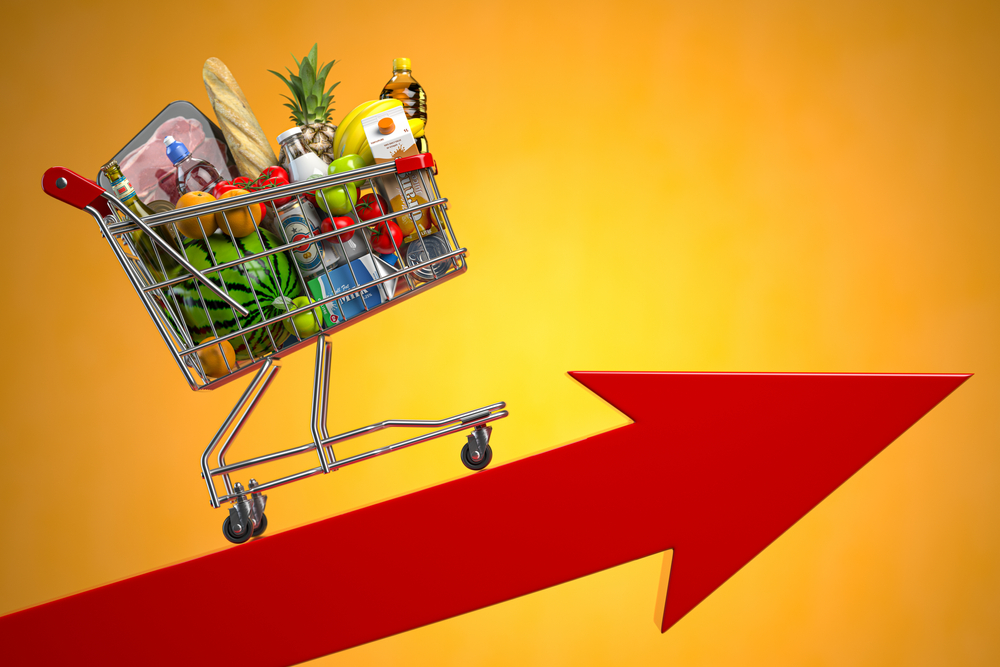Household Bills
Food prices soar as minister slammed for ‘out of touch’ comments

The British Retail Consortium (BRC) said food inflation accelerated to 3.5% in April, up from 3.3% in March.
This is above the 12- and six-month average price growth rates of 1.3% and 2.6%, respectively and is the highest food inflation rate since March 2013.
The figures are from the British Retail Consortium-NielsenIQ price index which also showed that shop price annual inflation accelerated to 2.7% in April, up from 2.1% in March.
The figures were released on the same day George Eustice, the environment secretary, told vulnerable households to buy value brands if they struggled to afford food.
He told Sky News: “Generally speaking, what people find is by going for some of the value brands rather than own-branded products – they can actually contain and manage their household budget.”
Eustice’s comments were branded ‘out of touch’ by critics and heavily criticised on social media.
The BRC reported that non-food inflation accelerated to 2.2% in April, up from 1.5% in March. This is above the 12- and six-month average price decrease of 0.1% and increase of 0.9% respectively, and marks the highest rate of inflation since the data series began in 2006.
Fresh food inflation decelerated in April to 3.4%, down from 3.5% in March. However, this is still above the 12- and six-month average price growth rates of 1.2% and 2.9%, respectively.
Helen Dickinson OBE, chief executive of the British Retail Consortium, said: “The impact of rising energy prices and the conflict in Ukraine continued to feed through into April’s retail prices. Non-food products, particularly furniture, electricals and books, have seen the highest rate of inflation since records began. This has been exacerbated by disruption at the world’s largest seaport, following Shanghai’s recent lockdown. Food prices continued to rise, though fresh food inflation slowed as fierce competition between supermarkets resisted price hikes on many everyday essentials.”
“Global food prices have reached record highs, seeing a 13% rise on last month alone, and even higher for cooking oils and cereals. As these costs filter through the supply chain, they will place further upward pressure on UK food prices in the coming months. Retailers will continue to do all they can to keep prices down and deliver value for their customers by limiting price rises and expanding their value ranges, but this will put pressure on them to find cost-savings elsewhere. Unfortunately, customers should brace themselves for further price rises and a bumpy road ahead.”
Mike Watkins, head of retailer and business insight at NielsenIQ, said:
“Inflation shows no signs of abating and the increase in non-food prices is an extra challenge for the high street as fragile consumer confidence and rising living costs are likely to negatively affect consumer spending. With food retailing no longer immune to these pressures, supermarkets are reacting by cutting the prices of some everyday grocery products including private label to help limit shop price inflation.”